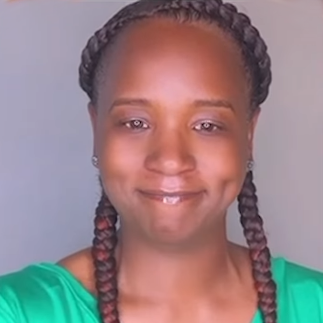
Creating Change: The Function of Volunteers in Juvenile Justice Programs
Introduction
The juvenile justice system often operates under a cloud of misconception and preconception, with many stopping working to acknowledge the potential for rehabilitation and favorable change. Among the most considerable forces driving this change is the generous dedication of volunteers. Scholarships for disadvantaged youth These people, who generously donate their time and abilities, play a vital function in transforming the lives of young people captured in the web of juvenile justice. In this short article, we will check out Creating Change: The Role of Volunteers in Juvenile Justice Programs, examining how volunteering can foster personal development, emotional healing, and significant change within these vulnerable populations.
Creating Modification: The Function of Volunteers in Juvenile Justice Programs
Volunteers working in juvenile justice programs serve as coaches, teachers, and supporters for youth who are frequently overlooked by society. They offer emotional support, useful assistance, and motivation for these young individuals to take charge of their lives. By engaging with at-risk youth through numerous efforts-- such as mentoring programs, tutoring sessions, and life skills workshops-- volunteers assist construct resilience and self-esteem.
Understanding the Juvenile Justice System
What Is the Juvenile Justice System?
The juvenile justice system is designed to attend to offenses dedicated by minors. Unlike adult courts, which concentrate on penalty, juvenile courts usually highlight rehabilitation. This method acknowledges that children are still establishing emotionally and psychologically.
Key Elements of the Juvenile Justice System
The Significance of Volunteer Support
Why Are Volunteers Essential?
Volunteers bring unique abilities and perspectives that boost existing programs within the juvenile justice system. Their contributions can result in improved outcomes for youth by supplying good example who promote favorable behavior.
Benefits of Volunteering in Juvenile Justice Initiatives
- Skill Development: Volunteers gain important experience that boosts their own professional qualifications.
- Community Impact: Favorable relationships between volunteers and youths add to stronger communities.
- Increased Awareness: Volunteers can help raise awareness about concerns affecting juvenile offenders.
Types of Volunteer Opportunities Available
Mentoring Programs
One-on-one mentoring plans allow volunteers to link meaningfully with youths facing challenges special to their circumstances.

Tutoring Initiatives
Volunteers can offer scholastic assistance through tutoring sessions that address instructional gaps triggered by interruptions in education due to incarceration or other factors.
Life Abilities Workshops
Workshops focusing on essential abilities such as communication, dispute resolution, and monetary literacy gear up youths with tools needed for successful reintegration into society.
Finding Volunteer Opportunities Near You
How Can I Discover Volunteer Jobs Near Me?
There are many ways to find volunteer chances:
Volunteer Opportunities Pleasant Hill
Residents in Pleasant Hill can access numerous local charities that focus on kids's services. Organizations often cater specifically to youth involved in the juvenile justice system.
Impact on Mental Health Through Volunteering
How Does Volunteering Impact Psychological Health?
Engaging with others through volunteer work has been revealed to fight sensations of isolation while improving self-confidence and total psychological health for both volunteers and those they serve.
Key Mental Health Advantages for Youths Involved in Juvenile Justice Programs
- Improved Self-Esteem
- Decreased Anxiety
- Enhanced Resilience
Real Stories: Success Through Volunteer Efforts
Sharing success stories from both volunteers and program participants provides a concrete look into how volunteer efforts translate into genuine modification:
Challenges Faced by Volunteers in Juvenile Justice Programs
Despite their worthy objectives, volunteers come across several difficulties:
1. Emotional Strain
Working carefully with distressed youths can be mentally taxing; thus, it's vital for volunteers to practice self-care.
2. Resource Limitations
Many programs deal with funding scarcities that restrict their capability to provide comprehensive services; nevertheless, volunteers can often action in to bridge these gaps creatively.
FAQs About Offering in Juvenile Justice Programs
What qualifications do I require to volunteer? A lot of programs require just enthusiasm and dedication; however, some may ask for background checks or specific training.
Can I select what type of offering task I want? Definitely! Many organizations permit you to pick functions that line up with your interests or expertise.

Is there an age requirement for volunteering? Some programs may have age restrictions; typically, you need to be at least 18 years of ages or accompanied by an adult if younger.
How much time do I require to commit? Commitment levels differ extensively from one-time occasions to continuous weekly engagements-- it's important to find what works best for you!
Can volunteering enhance my career prospects? Yes! Lots of employers worth community participation extremely; furthermore, you'll gain new skills relevant across various fields.
Are there any virtual volunteer opportunities available? Definitely! Numerous organizations use remote options such as online tutoring or mentoring through video calls due to increased need throughout recent times.
Conclusion
In conclusion, the crucial function played by volunteers within juvenile justice programs can not be overemphasized-- their impact ripples throughout communities far beyond specific interactions with at-risk youth. By investing time-- and in some cases heart-- into these efforts, they not just assist in individual changes however also contribute favorably toward wider societal modifications surrounding understandings of young offenders.
As we progress together towards social progress anchored around compassion rather than condemnation-- let's celebrate those unrecognized heroes ready action up where they're needed most!
This post serves as a helpful guide on how people interested in making a distinction can get involved while shedding light on an essential aspect of our society-- juvenile justice reform led by enthusiastic volunteers committed towards creating significant change!